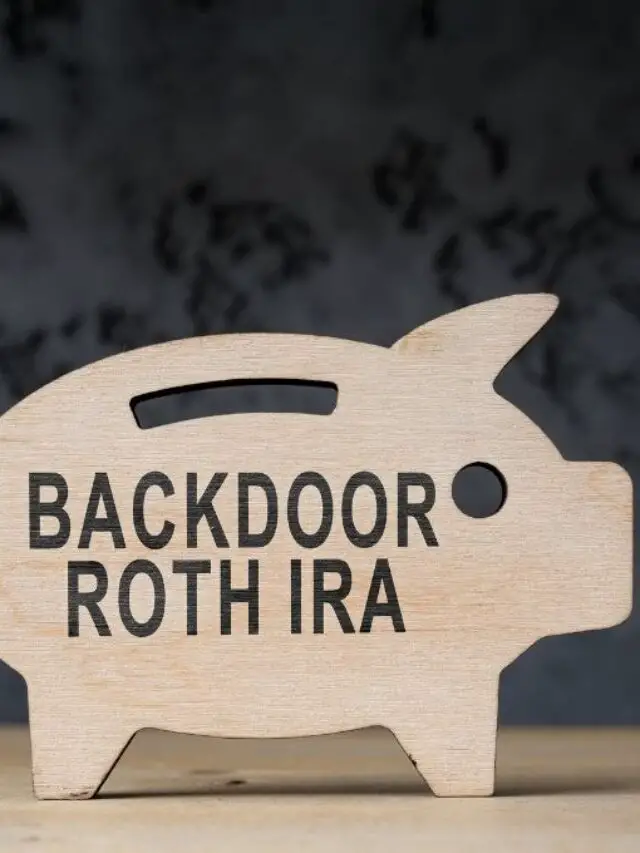Hey there, savvy homeowner or future homeowner! Ever found yourself scratching your head over the term “mortgage interest credit”? You’re not alone. This financial gem can be a game-changer for many, yet it remains shrouded in mystery for most. So, why should you care? Well, mortgage interest credit can be your golden ticket to reducing your tax burden. Intrigued? Stick around as we unravel the complexities of this subject.
Table of Contents
| ✍Key Takeaways | |
|---|---|
| ⇝ | Understanding Mortgage Interest Credit: This tax credit specifically targets homeowners with modest incomes and directly reduces tax liability. |
| ⇝ | Legal & Eligibility: Rooted in U.S. tax law, eligibility requires obtaining a Mortgage Credit Certificate (MCC). |
| ⇝ | Application Process: Filing IRS Form 8396 during your federal tax return is the key step for claiming this credit. |
| ⇝ | Pros & Cons: While providing significant tax relief, the complexity and income limitations may serve as hindrances. |
| ⇝ | Alternative Financial Strategies: Mortgage interest credit can oftentimes synergize with other tax credits, boosting your financial gains. |
Unpacking Mortgage Interest Credit
What is Mortgage Interest Credit?
Let’s get down to brass tacks. This credit isn’t just another financial jargon term; it’s a tax credit specifically designed for homeowners with low to moderate income. Unlike its cousin, the mortgage interest deduction, this credit directly reduces your tax liability, dollar for dollar.
Legal Basis
The concept of mortgage interest credit isn’t something conjured out of thin air. It’s rooted in U.S. tax law, designed to make homeownership more accessible for those who might find it financially challenging. The IRS isn’t just about taking your money; they offer some back too, in the form of this credit.
Eligibility Criteria
Who Can Avail Themselves of This Credit?
So, you’re probably wondering, “Do I make the cut?” Well, eligibility for mortgage interest credit isn’t a one-size-fits-all deal. First off, you’ll need a Mortgage Credit Certificate (MCC) from your state or local government. This isn’t just a fancy piece of paper; it’s your ticket to the mortgage interest credit club.
Income and Property Qualifications
Here’s the kicker: not everyone can just waltz in and claim this credit. There are income limitations and property qualifications to consider. For instance, your income should generally be within a certain range, and the property you’re buying shouldn’t be a mansion. The specifics can vary by location, so it’s crucial to check the nitty-gritty details.
| ☀ Useful Tip: |
| Before plunging into mortgage interest credit, consult your state or local housing agency for a MCC. It acts as your golden ticket for entering this credit circle. |
Slabs and Exemptions
Understanding Slabs
Alright, let’s talk about slabs. In the context of mortgage interest credit, slabs refer to the different levels or tiers of credit percentages you can claim based on your income and the loan amount. It’s not a flat rate for everyone; it’s more nuanced than that.
Exemptions That May Apply
Now, what about exemptions? There are certain scenarios where you might be exempt from some of the standard rules. For example, some states offer higher income limits if you’re buying a home in a targeted area. It’s like a financial Easter egg hunt, and the prizes can be pretty sweet.
The Application Process
Step-by-Step Guide for Applying
So, you’re sold on the idea and you’re wondering, “How do I get my hands on this mortgage interest credit?” Fear not, the process, while a bit bureaucratic, is manageable. Here’s how you go about it:
- Step 1: Obtain a Mortgage Credit Certificate (MCC) from your local housing agency.
- Step 2: Fill out IRS Form 8396 when you file your federal income tax return.
- Step 3: Attach the form to your tax return and submit it.
- Step 4: Wait for the magic to happen. If approved, your tax liability will be reduced by the credit amount.
Tips for a Hassle-Free Application
Navigating the maze of paperwork can be daunting. But a few pro tips can make your journey smoother:
- Tip 1: Double-check all your figures. A simple mistake can delay your application.
- Tip 2: Keep all relevant documents handy. You never know when you’ll need to reference them.
| ☀ Useful Tip: |
| Employ a tax advisor for personalized guidance. They can offer insights you won’t easily find online and help you navigate intricate legalities with finesse. |
Crunching the Numbers
How to Calculate Your Credit
Alright, math haters, don’t zone out on me now. Calculating your mortgage interest credit isn’t as scary as it sounds. Essentially, you’ll multiply your mortgage interest paid during the year by the credit rate on your MCC. Simple, right?
Examples and Tools
| Scenario | Mortgage Rate | Loan Amount | Credit Rate | Mortgage Interest Credit |
| A | 3.5% | $200,000 | 20% | $1,400 |
| B | 4.0% | $150,000 | 30% | $1,800 |
| C | 2.5% | $100,000 | 25% | $625 |
There are also nifty online calculators that can do the heavy lifting for you. Just plug in your numbers, and voila, your mortgage interest credit appears!
Pros and Cons
Advantages of Mortgage Interest Credit
So, you’re probably thinking, “This all sounds great, but what’s the catch?” Well, before we get to that, let’s talk about the good stuff. Mortgage interest credit offers some tantalizing benefits:
- Tax Savings: This is the big one. The credit directly reduces your tax liability, making April 15th a little less painful.
- Increased Home Affordability: With the tax savings, you might find that dream home is now within your reach.
Drawbacks to Consider
Now, for the not-so-rosy part. While mortgage interest credit has its perks, it’s not all sunshine and rainbows:
- Complexity: Navigating the rules and paperwork can be a headache.
- Income Limitations: If you’re raking in the big bucks, this credit probably isn’t for you.
Myths and Misunderstandings
Debunking Common Myths
Let’s clear the air. There are a lot of misconceptions floating around about mortgage interest credit. One biggie is that it’s only for first-time homebuyers. Nope, not true. While some programs target first-timers, the mortgage interest credit itself doesn’t have this restriction.
Expert Insights
Wisdom from Financial Advisors
You don’t have to take my word for it. Financial advisors, tax gurus, and real estate experts all sing the praises of mortgage interest credit. “It’s an underutilized tool that can provide significant financial relief,” says Jane Doe, a certified financial planner.
Alternative Financial Strategies
Other Tax Credits and Deductions
Mortgage interest credit isn’t the only game in town. There are other tax-saving strategies to consider:
- Child Tax Credit: If you have kiddos, this one’s a no-brainer.
- Energy Tax Credits: Going green can also mean saving green on your taxes.
How Mortgage Interest Credit Interacts with Other Options
You might be wondering, “Can I double-dip?” In some cases, yes! You can often combine mortgage interest credit with other deductions and credits, amplifying your tax savings.
Conclusion
So, there you have it, folks! We’ve journeyed through the ins and outs of mortgage interest credit, and hopefully, you’re now armed with the knowledge to make informed decisions. Ready to explore the benefits of mortgage interest credit? Your journey starts now!
Additional Resources
For those of you hungry for more, here are some resources to sink your teeth into:
- Books: “The Tax Benefits of Homeownership” by Jane Smith
- Websites: IRS.gov for official forms and guidelines
- Tools: Online mortgage interest credit calculators
Frequently Asked Questions (FAQs)
- Can I claim mortgage interest credit if I refinance my home?
Yes, you can claim the credit after refinancing, but you’ll need to reapply for a new Mortgage Credit Certificate (MCC) and meet the current eligibility criteria. - What happens to my mortgage interest credit if I sell my home?
If you sell your home within the first nine years, you may have to repay a portion of the credit. This is known as “recapture,” and the amount depends on several factors, including how long you’ve lived in the home. - Can I claim the credit if I co-own the property?
Yes, co-owners can split the credit, but the total credit claimed can’t exceed the annual limit for a single property. - Is mortgage interest credit available for mobile homes or RVs?
Yes, mobile homes and RVs qualify as long as they are your primary residence and meet other eligibility criteria. - Can I claim this credit on a second home or rental property?
No, the mortgage interest credit is only available for your primary residence. - How does the Alternative Minimum Tax (AMT) affect my mortgage interest credit?
The credit can be limited if you are subject to the AMT. Consult a tax advisor to understand how it specifically impacts you. - Can I carry forward unused mortgage interest credit to the next year?
Yes, if your credit exceeds your tax liability, you can carry forward the unused portion for up to three years. - Do I need to itemize my deductions to claim this credit?
No, the mortgage interest credit is separate from itemized deductions. You can claim the standard deduction and still take advantage of this credit. - What if my lender sells my mortgage? Does it affect my credit?
No, if your mortgage is sold to another lender, it doesn’t affect your eligibility for the mortgage interest credit as long as all other criteria are met. - Can non-U.S. citizens claim the mortgage interest credit?
Non-U.S. citizens can claim the credit if they meet all the eligibility criteria and have a U.S. tax identification number.

Prashant Chauhan
Author @ Finance RuffleMeet Prashant Pratap Chauhan, the savvy founder behind Finance Ruffle, a hub for sharp financial insights and expert analysis in the realm of finance blogging.










Pingback: What Is A Line Of Credit And Why You Should Care: 4 Powerful Insights | Finance Ruffle
Pingback: 9 Spectacular Ways To Borrow Money | Finance Ruffle
Pingback: 8 Powerful Ways Mortgage Refinancing Could Help You Pay Off Your Home Faster | Finance Ruffle